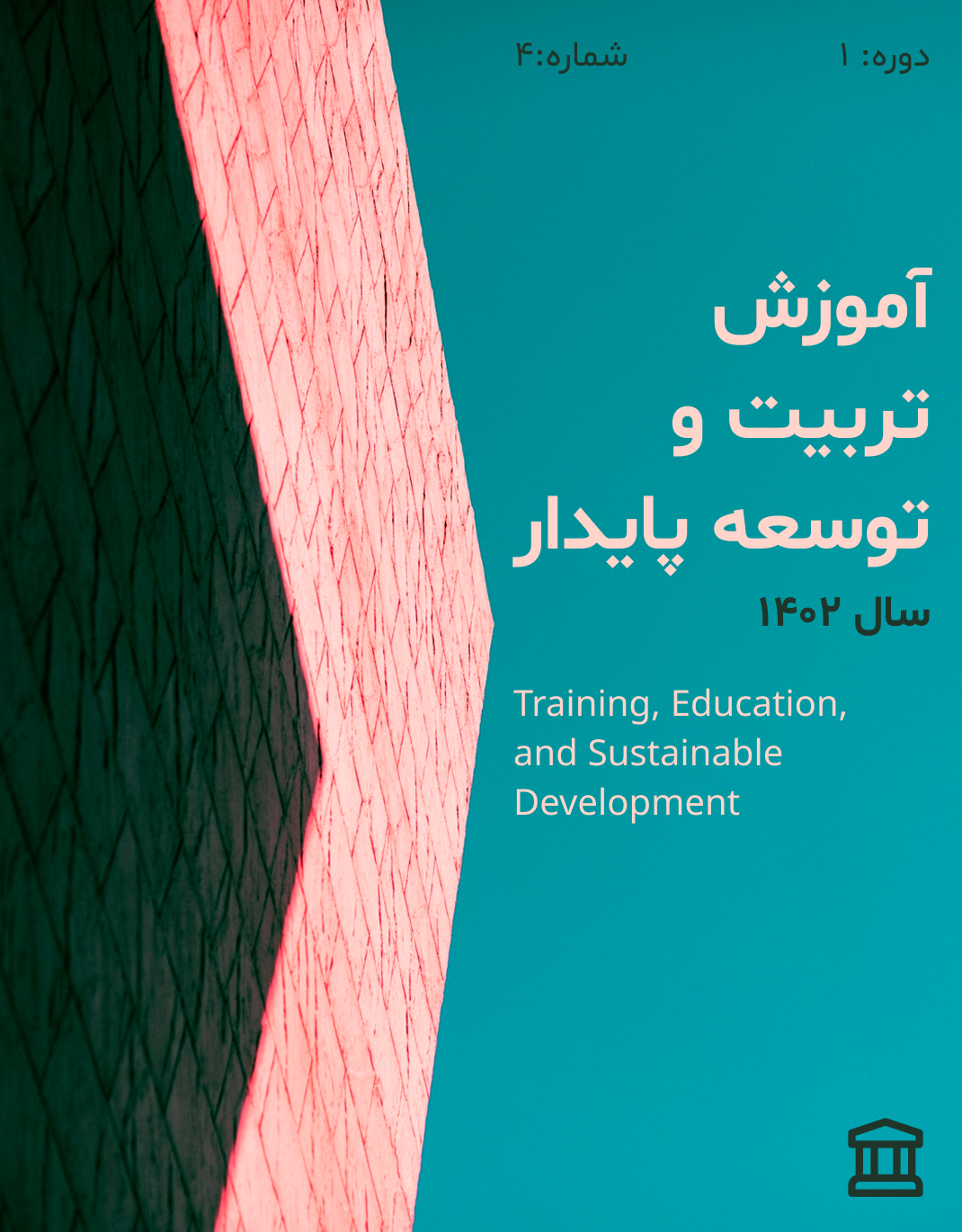Application of Artificial Intelligence in the Educational Quality of Schools
Keywords:
Artificial intelligence, Intelligent BI system, educational management indicators, educational quality, smart schoolsAbstract
This study aims to provide an appropriate model for monitoring educational quality indicators of schools through intelligent systems, considering Iran’s educational conditions and student capacities, with a case study in Mazandaran Province. The research was applied in purpose, descriptive in data collection, and mixed in approach (qualitative and quantitative). Using a meta-study and meta-analysis of over 30 scientific articles related to intelligent educational indicator systems, major themes and categories were extracted. A questionnaire was distributed among 120 participants, and confirmatory factor analysis was performed using PLS software to evaluate the reliability and validity of the proposed model. The results revealed 12 indicators within 5 main categories—motivation, participation, transparency, growth, optimization, productivity, learning, personalization, interactive environment, educational justice, skill training, and educational quality. All factor loadings exceeded 0.70 and t-values surpassed 1.96, confirming strong model validity. The coefficient of determination (R²) for endogenous variables ranged from 0.74 to 0.81, indicating high predictive power. The intelligent management model effectively integrated teacher–student–school interactions, resource planning, and continuous learning enhancement through AI-driven analytics. The use of artificial intelligence in education significantly enhances learning quality, promotes educational equity, and improves school management efficiency. The findings emphasize the need for developing intelligent infrastructures and training educators to leverage data-driven systems for sustainable educational improvement.
Downloads
References
Abgaryan, H., Matevosyan, A., & Asatryan, S. (2023). Revolutionary Changes in Higher Education with Artificial Intelligence. Modern Issues of Pedagogy and Psychology, 10(1), 76. https://doi.org/10.24234/miopap.v10i1.454
Aghaziarati, A. (2023). Artificial Intelligence in Education: Investigating Teacher Attitudes. Aitechbesosci, 1(1), 35-42. https://doi.org/10.61838/kman.aitech.1.1.6
Ahmad, S. F. H., Alam, M. M., Rehmat, M., Irshad, M., Arraño-Muñoz, M., & Ariza-Montes, A. (2023). Impact of artificial intelligence on human loss in decision making, laziness and safety in education. Humanities and Social Sciences Communications, 10(1), 1-14. https://doi.org/10.1057/s41599-023-01787-8
Akhlakpour, M. (2023). The impact of “Artificial Intelligence-based Recommendation System” on educational developments. Journal of Sociology of Communication, 12(3). https://ensani.ir/fa/article/568193/
Al Darayseh, A. (2023). Acceptance of artificial intelligence in teaching science: Science teachers' perspective. Computers and Education: Artificial Intelligence, 4, 100132. https://doi.org/10.1016/j.caeai.2023.100132
Aliabadi, R. (2023). Transdisciplinary AI Education: The Confluence of Curricular and Community Needs in the Instruction of Artificial Intelligence. 137-151. https://doi.org/10.1007/978-981-99-7947-9_11
Amir Hosseini, F., & Khajir, Y. (2023). Artificial Intelligence Strategies for Higher Education Systems. Foresight, Higher Education, and Sustainable Development, 2(2), 64-76.
Annamalai, N., Ab Rashid, R., Hashmi, U. M., Mohamed, M., Alqaryouti, M. H., & Sadeq, A. E. (2023). Using chatbots for English language learning in higher education. Computers and Education: Artificial Intelligence, 5, 100153. https://doi.org/10.1016/j.caeai.2023.100153
Annus, N. (2023). Weigh the Pros and Cons of Using Artificial Intelligence in Education. International Journal of Science, Engineering and Technology, 11(3). https://www.ijset.in/wp-content/uploads/IJSET_V11_issue3_385.pdf
Arbabi, R. (2023). The role of artificial intelligence in technological education and training. Journal of Sexual and Psychological Disorders, 1(4). https://www.spdjournal.ir/article_200426.html
Baidoo-anu, D., & Owusu Ansah, L. (2023). Education in the Era of Generative Artificial Intelligence (AI): Understanding the Potential Benefits of ChatGPT in Promoting Teaching and Learning. Journal of AI, 7(1), 52-62. https://doi.org/10.2139/ssrn.4337484
Thompson, J. (2022). Artificial intelligence in education: Trends, challenges, and future directions. Journal of Educational Technology and Innovation, 15(2), 45-67. https://dergipark.org.tr/en/download/article-file/4143191
Ubah, A. E., Onakpojeruo, E. P., Ajamu, J., Mangai, T. R., Isa, A. M., Ayansina, N. B., & Al-Turjman, F. (2022). A Review of Artificial Intelligence in Education. 2022 International Conference on Artificial Intelligence of Things and Crowdsensing (AIoTCs),
Wan, Y. (2022). Design and Practice of Artificial Intelligence in Physical Education System. 418-423. https://doi.org/10.2991/978-94-6463-044-2_53
Xue, Y., & Wang, Y. (2022). Artificial Intelligence for Education and Teaching. Hindawi Wireless Communications and Mobile Computing, 2022, Article ID 4750018. https://doi.org/10.1155/2022/4750018
Yang, H., & Kyun, S. (2022). The Current Research Trend of Artificial Intelligence in Language Learning: A Systematic Empirical Literature Review From an Activity Theory Perspective. Australasian Journal of Educational Technology. https://doi.org/10.14742/ajet.7492
Yang, W. (2022). Artificial Intelligence education for young children: Why, what, and how in curriculum design and implementation. Computers and Education: Artificial Intelligence, 3. https://doi.org/10.1016/j.caeai.2022.100061
Zhao, J., & Fu, G. (2022). Artificial Intelligence-Based Family Health Education Public Service System. Frontiers in psychology, 13. https://doi.org/10.3389/fpsyg.2022.898107
Downloads
Published
Submitted
Revised
Accepted
Issue
Section
License
Copyright (c) 1402 سید عزت اله محمدی (نویسنده); سیداحمد قاسمی; حامد عباسی نامی (نویسنده)

This work is licensed under a Creative Commons Attribution-NonCommercial 4.0 International License.


